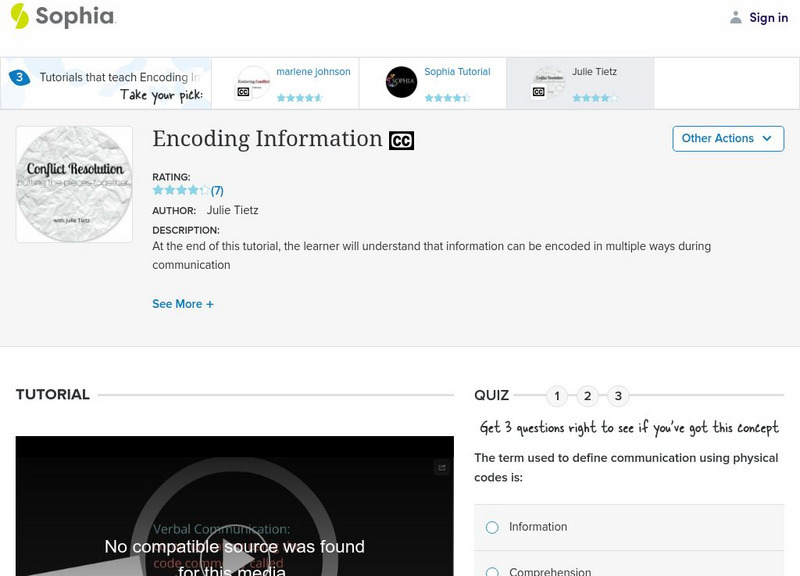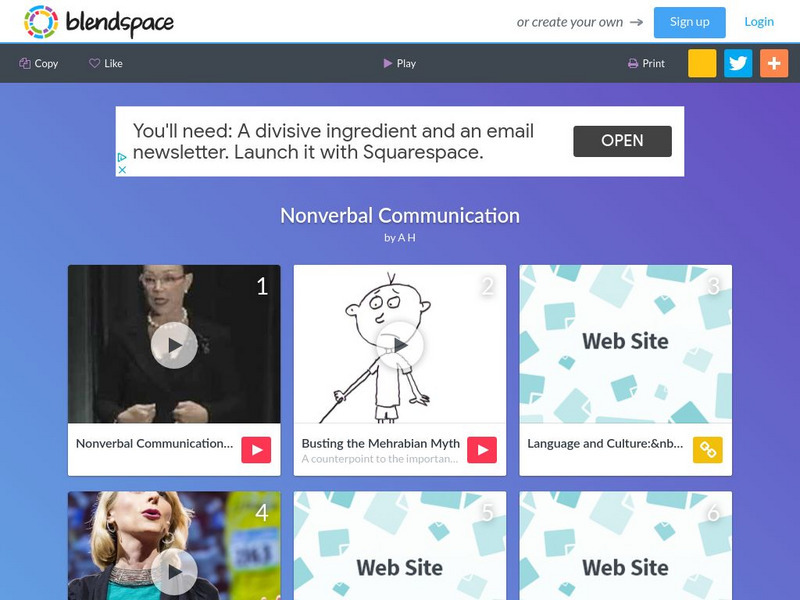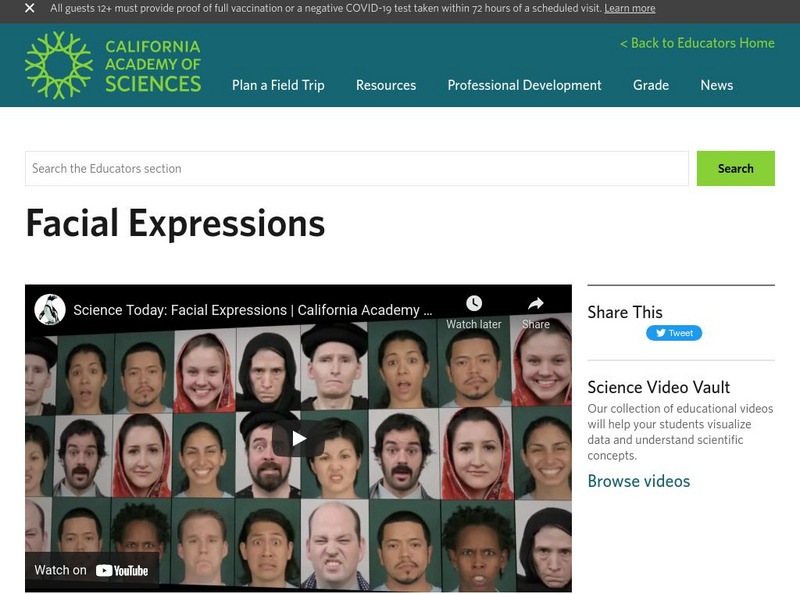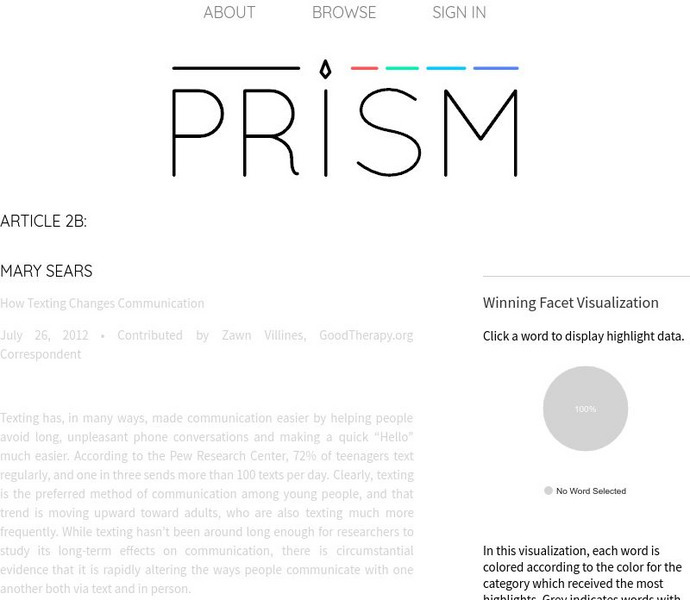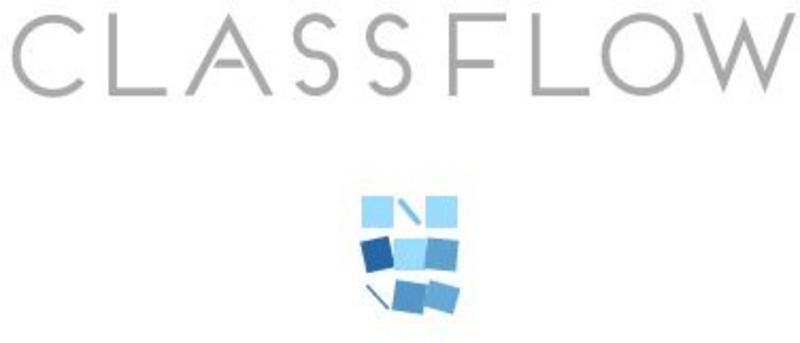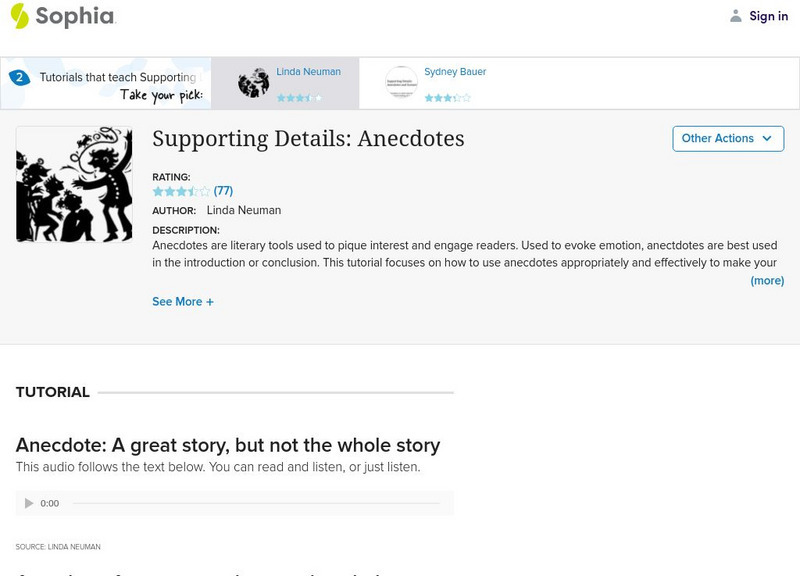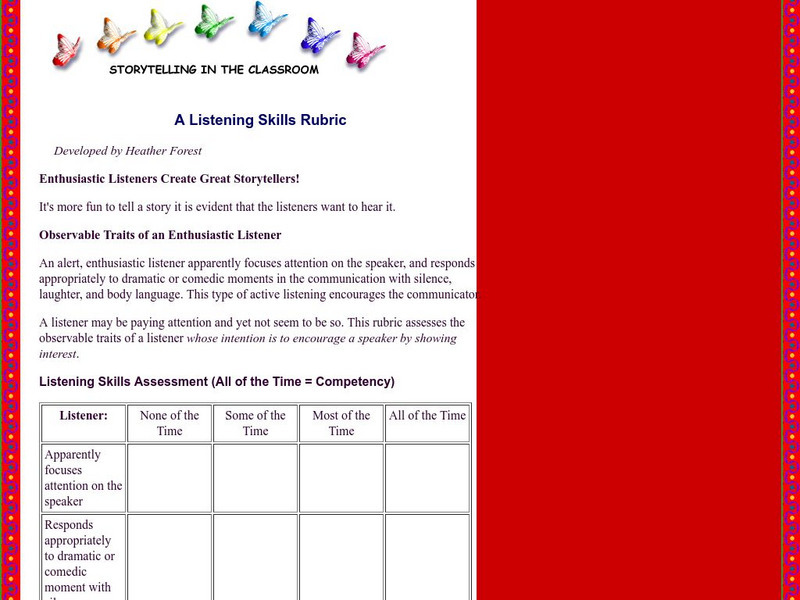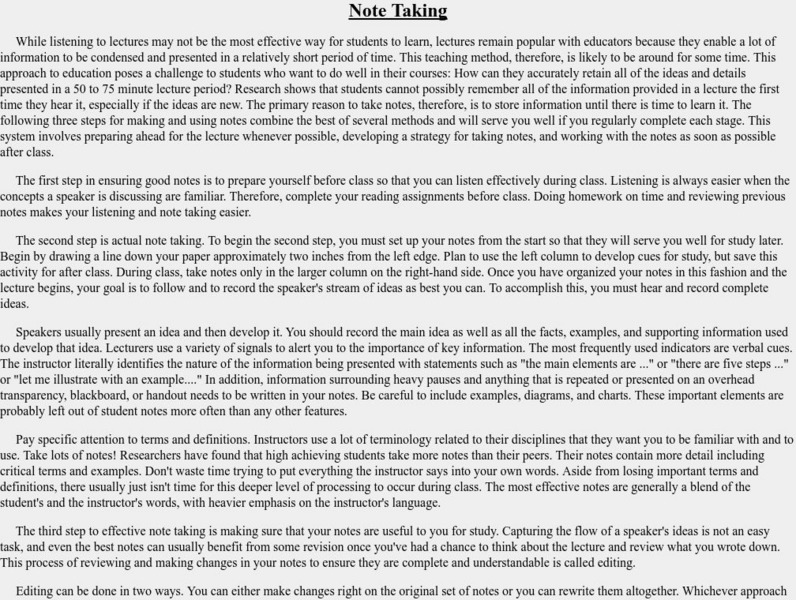Sophia Learning
Sophia: Cultural Communication Styles: Lesson 2
At the end of this tutorial, the learner will understand that communication symbols and styles vary in meaning and application between cultures. It is 2 of 3 in the series titled "Cultural Communication Styles."
Sophia Learning
Sophia: Encoding Information: Lesson 2
At the end of this tutorial, the learner will understand that information can be encoded in multiple ways during communication. It is 2 of 3 in the series titled "Encoding Information."
TES Global
Blendspace: Nonverbal Communication
In this TES Blendspace, students will have access to nine resources that will help them learn about nonverbal communication.
California Academy of Sciences
California Academy of Sciences: Facial Expressions
Are facial expressions learned or innate? [2:58]
University of Virginia Library
Prism: "Article 2 B" Visualization
[Free Registration/Login Required] See the results of how users have highlighted an article by Mary Sears entitled "How Texting Changes Communication." Details that show ethos are blue while details that show pathos are red, and details...
ClassFlow
Class Flow: Writing Review
[Free Registration/Login Required] In this flipchart students will interactively review the following areas of writing: parts of a paragraph; unity, coherence, and elaboration; and the 4 types of writing.
ClassFlow
Class Flow: Evaluation Peer's Stories
[Free Registration/Login Required] This flipchart is designed for students to have a guideline for evaluating a peer's stories. Once a peer or teacher has read another peer's story, this will guide you on traits to look for in a good...
Sophia Learning
Sophia: Supporting Details: Anecdotes
Anecdotes are literary tools used to pique interest and engage readers. Used to evoke emotion, anecdotes are best used in the introduction or conclusion. This tutorial focuses on how to use anecdotes appropriately and effectively to make...
Other
Story Arts: Listening Skills Table for Storytelling
Two rubrics to assess a listener's attention during a storytelling session. The first is used to record frequency of audience reactions. The second is used to access the listener's level of comprehension.
Other
Smart Technologies: Effective meetings.com: Are You a Good Listener?
"A big part of being an effective team member is being a good listener." Here you'll find a set of tips, based on the letters in the word, "ladder," that will enhance your interpersonal communication. Cursor down to get the information....
Other
Frontiernet.net: Note Taking
This site from Frontiernet.net outlines the reason why educators prefer to "lecture" students, as well as the best ways to take notes during these lectures.
University of Victoria (Canada)
The U Vic Writer's Guide: Paragraph Unity
This writing lab site presents examples that show students poor unity within a paragraph.



